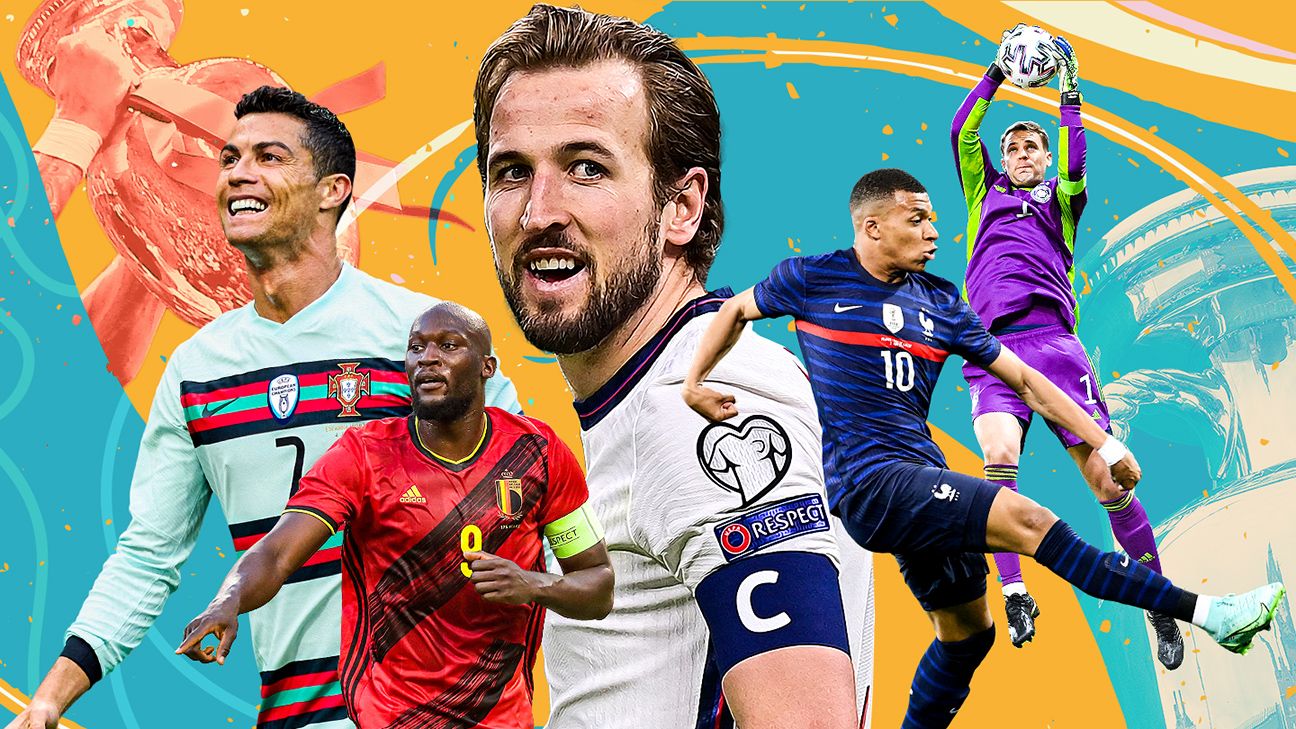At long last, Euro 2020 is here! Twenty-four teams across 11 host cities promise to make the Euros a festival of football — all of it LIVE on ESPN and ESPN+ from June 11 to July 10 in the U.S. — but all the top teams vying for the title have issues coming into the tournament. Can France make history? Can England handle the pressure? Will Cristiano Ronaldo‘s supporting cast lead Portugal to a second straight Euros crown? And which team is the next Iceland and ready to shock stronger opponents?
– Euro 2020 fixtures: Match dates, times and venues
– Euro 2020 on ESPN: Stream LIVE games and replays (U.S. only)
We’ve got all the info you need on the top teams, the must-see games and the big issues heading into Friday’s opener between Italy and Turkey.
Jump to: France | England | Portugal | Germany | Spain | The “Next Iceland” | Italy | Must-see games | Belgium | Scotland | Predictions

FRANCE: Can they make history with a second ‘double-double’?
0:33
Julien Laurens provides an update on Karim Benzema after he left France’s friendly vs. Bulgaria injured.
The double-double of World Cup and European Championships: they did it in 1998 and 2000… but can they do it in 2018 and 2020?
France could be the first country to achieve this twice. None of their biggest rivals — Germany, Spain, Italy — has been able, but France will never have a better opportunity to do it than this summer. The Zinedine Zidane and Didier Deschamps generation in 1998 was great, a team built around collective spirit over individual stars, and they won the World Cup with no prolific striker and an incredible defence. In 2000, however, they were at their peak and added individual brilliance to their strength; with Thierry Henry, Nicolas Anelka, Youri Djorkaeff and David Trezeguet, they finally had a wonderful attacking line.
There are many similarities with the team of 1998/2000 and this group, anchored by Antoine Griezmann, Paul Pogba and, beyond them, the Kylian Mbappe generation. Deschamps is the common thread and Les Bleus have never looked so strong.
– Darke: Why France, Italy are my Euro 2020 favourites
– European Soccer Pick ‘Em: Compete to win $10,000
This team has the DNA of its head coach, like 1998 had with Aime Jacquet, one of Deschamps’ mentors. Deschamps is first and foremost a pragmatic, conservative manager. His team will defend well and be well-drilled. He is also astute. After five years and 237 days without Karim Benzema since their falling-out over the Mathieu Valbuena scandal, the France boss eventually called him back in May to make this squad even stronger. At 33, the Real Madrid striker is in the best form of his life. He’s coming off another great season in Spain (23 goals, 9 assists in La Liga) and he’s hungrier than ever after missing on the success of 2018 and the near-success of 2016.
No other team at the Euros has this much talent up front. There’s a bit of everything: pace, efficiency, power, skills, strength, height, intelligence, nous. Mbappe is this team’s Henry. Benzema plays like Anelka, a goal scorer who liked to drop deep and organise the play. Antoine Griezmann is a bit of everyone. Olivier Giroud is like Trezeguet, a poacher and a box player. Ousmane Dembele, Kingsley Coman and Wissam Ben Yedder can start or come off the bench, bringing speed, close control and more goals.
1:14
Kylian Mbappe can’t take his eyes off the ball as he talks with French astronaut Thomas Pesquet from the International Space Station.
Then there’s N’Golo Kante. The Champions League final Man of the Match is the best midfielder in the world heading into the Euros, and one of the best players at any position. He brings so much to this team in terms of effort, work rate and intelligence in defense or attack; his partnership with Pogba will be key for the French doing well, as it was in 2018.
In 2016, France were favourites to win the Euros, but lost to a Portugal side without Cristiano Ronaldo. In 2018, they were favourites again and won the World Cup. They are used to the pressure and to the expectations. The fact that they can make more history by doing the double-double will certainly not hamper them; if anything, it’ll spur them on even more. — Julien Laurens

ENGLAND: Can they answer the hype?
England’s biggest challenge this summer might be how they cope with hope turning into expectation.
Manager Gareth Southgate took charge five years ago with the national team in a desperate state, humiliated by Iceland at Euro 2016 and forced to part with Roy Hodgson’s replacement after that tournament, Sam Allardyce, just one game into his tenure amid a newspaper sting. Consequently, little was expected from England at the 2018 World Cup, but Southgate encouraged his squad to unburden themselves from historic failure and revel in the moment. They even broke the curse of the dreaded penalty shootout, beating Colombia on spot-kicks in the round of 16 — their first win by that method in a World Cup match.
Three years on, many of England’s younger players at that tournament have developed further and are now supplemented by exciting talent of an even more tender age.
England have one of the youngest squads here, and 15 of the 26-man squad have no senior tournament experience. The selections of Jude Bellingham and Bukayo Saka, 17 and 19 years old respectively, epitomise Southgate’s commitment to youth over experience, but more is demanded of the group now. This summer is the closest thing England have experienced to a home tournament for 25 years dating back to Euro ’96, when a nation was whipped into a frenzy by England’s run to the semifinals. Southgate will be able to strategise and train at England’s usual home of St George’s Park, a facility where they have a full-size pitch re-created to the exact specifications of Wembley. That will come in handy, because all three of England’s group games are there. In fact, should England win Group D, they would play every game all the way through to the final, bar one, at Wembley.
– Inside England camp: Wembley replica pitch, basketball and BBQs
– Henderson lesson: If you take ball off teammate, you’d better score
Yet preparations have not been ideal. Injuries to key players, including Manchester United defender Harry Maguire and Liverpool midfielder Jordan Henderson, have created uncertainty over Southgate’s starting XI for the opening game against Croatia. Liverpool full-back Trent Alexander-Arnold was forced to pull out through injury on Thursday, while Jack Grealish is managing a shin problem and Leeds midfielder Kalvin Phillips has been hampered by a shoulder issue.
1:14
Steve Nicol explains why he believes opposition defences won’t want to face Marcus Rashford at Euro 2020.
There are questions marks about England defensively — particularly against the top sides — but they possess an exciting array of attacking talent that could cause problems for any team. In addition to Tottenham striker Harry Kane, who won the Golden Boot as top scorer at the last World Cup, Southgate has an embarrassment of riches, with Manchester City duo Phil Foden and Raheem Sterling, Manchester United’s Marcus Rashford and Borussia Dortmund‘s Jadon Sancho among those vying for inclusion.
Perhaps the key point is this: England reached the semifinals at Russia 2018 with a significant reliance on set-pieces and an acute understanding of VAR. Only three goals came from open play, while their nine from set-pieces was the highest at a World Cup since records began in 1966. England have to be better in possession — a perennial tournament failing — and carry more of a consistent threat, all while making sure they tighten up defensively. It does feel as though Southgate has more options this time and his tactical choices will therefore be vital, deciding whether to play with a back three as in Russia or a 4-3-3, 4-2-3-1 shape.
This is still a young squad, but England have come through a lengthy rebuild. The next phase starts now. — James Olley
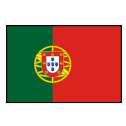
PORTUGAL: Finally, Ronaldo has a genuine supporting cast
Portugal are always about Cristiano Ronaldo. Despite the array of talent available to coach Fernando Santos, the discussion about the reigning European champions always starts and ends with the 36-year-old Juventus forward, and that’s hardly surprising.
Ronaldo heads into Euro 2020 just six goals short of equalling the world record international goal tally of 109, held by former Iran striker Ali Daei. One goal in this tournament will see him move clear of Michel Platini (both have scored nine goals) as the all-time top scorer in the European Championship finals.
– How Euros will cope with COVID-19: What you need to know
He has scored in more Euros (four) than any other player and made more appearances (21) than anyone else. His haul of 40 goals in Euros qualifying is also a record, with Zlatan Ibrahimovic a distant second with 25. But perhaps for the first time since he burst onto the international stage at Euro 2004, when he scored his first international goal in the opening game against Greece, Portugal are not solely reliant on the performances of their ageing talisman.
The emergence of Liverpool’s Diogo Jota and Atletico Madrid‘s Joao Felix since Portugal won Euro 2016 has given them greater options in attack, with Eintracht Frankfurt‘s Andre Silva another capable threat. In midfield, Manchester City’s Bernardo Silva and Manchester United’s Bruno Fernandes offer creativity and goals, so any opponent believing that stopping Ronaldo is the key to victory is unlikely to come away with a positive result.
The problem for Coach Santos is fitting all of his attacking options in. Ronaldo barely contributes defensively, either in terms of tracking back or pressing the opposition defenders, but he’s always going to play because, well, he’s Ronaldo and he is still capable of changing a game with a moment of brilliance. With Ronaldo allowed to roam across the forward line, the other players have to do his share of the work off the ball, but Portugal are a team with a strong work ethic, so whoever Santos selects, he can be assured of a fully-committed performance in support of Ronaldo.
The strength of Portugal’s defensive options, with Manchester City’s Ruben Dias, the 38-year-old Porto centre-half Pepe, Borussia Dortmund full-back Raphael Guerreiro and Wolves goalkeeper Rui Patricio, enables Santos to overload his team with attacking players. Portugal are a real contender to win the Euros again.
Even though he’s closer to 40 years old than 30 this year, Ronaldo is still the first name on the team sheet. He is the main man, but this time, he has a formidable supporting cast behind him. — Mark Ogden
1:03
Gab Marcotti talks through the sensational Cristiano Ronaldo had for Portugal from the sidelines during the Euro 2016 final.
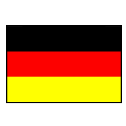
GERMANY: Low’s final tournament could go either way
Germany’s campaign promises to be one of extremes: either a triumphant departure for outgoing manager Joachim Low, who is leaving after the Euros, or it will be an unmitigated disaster. In a group with France, Portugal and Hungary (the latter sadly without the brilliant Dominik Szoboszlai), Germany will have to show a remarkable improvement if they’re to finish at the top of Group F.
They’ve endured some humbling results already in 2021 — a 6-0 hammering to Spain, along with a 2-1 defeat to North Macedonia that was labeled by Bild as Low’s third great failure following the 2018 World Cup debacle — but a brief glance through their squad shows they’re reliably packed with quality. The spine of the team comes from Bayern Munich, with Niklas Sule, Joshua Kimmich, Manuel Neuer, Thomas Muller, Serge Gnabry and Leroy Sane all likely to start. Muller and Mats Hummels are back in, having been publicly exiled after the 2018 World Cup. They pick themselves, but then it gets a little complicated. Low will only have space for one of several brilliant midfielders in Leon Goretzka, Kai Havertz, Ilkay Gundogan, Florian Neuhaus and Toni Kroos, though the smart money is on Kroos to win that spot. But defense remains their Achilles’ heel.
Then come the issues of just who is going to score. They could comfortably operate without a clear out-and-out striker, but with Timo Werner struggling for confidence after a dismal first season at Chelsea, and Sane and Gnabry out of form, goals could be a real problem.
Low has been emphasising the importance of a winning “mentality” in his pre-tournament news conferences, and he wants that to be the theme of this campaign. With Hansi Flick confirmed as Low’s replacement, the outgoing Germany manager is adamant he’s focused on a winning finish to a remarkable 15 years in charge. “I’m going into this tournament with the same focus, concentration and anticipation,” Low said. “There isn’t anything I wouldn’t do differently.” — Tom Hamilton
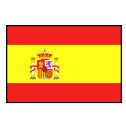
SPAIN: COVID-19 issues aren’t their only stress
1:16
Alejandro Moreno examines the difficult situation facing Spain amid a COVID-19 outbreak on the eve of the Euros.
Spain’s lead-in to the Euros couldn’t have gone much worse. Captain Sergio Busquets is isolating at home after testing positive for COVID-19, leaving the rest of the squad in quarantine and unable to train together just days before their opening game against Sweden (Stream LIVE: Monday, 3 p.m. ET, on ESPN+ in the U.S.). The team couldn’t even play their final warm-up friendly against Lithuania given the coronavirus precautions, drafting in the U21s instead, and are undergoing daily testing in the hope that an outbreak has been avoided, with defender Diego Llorente the latest to return a positive result.
Prior to that, coach Luis Enrique’s 24-man squad list had already enraged across the nation, with the omission of an unfit Sergio Ramos — coupled with the absence of any Real Madrid players — causing indignation in the Madrid press. The coach doesn’t seem to have settled on a starting XI yet, either. There are doubts over the goalkeeping situation: Athletic Bilbao‘s Unai Simon was picked ahead of David de Gea and Brighton’s Robert Sanchez vs. Portugal last Friday, but looked nervous in their 0-0 draw.
That game also raised further questions over whether Alvaro Morata is the right man to lead a goal-shy attack, with Villarreal‘s Gerard Moreno a tempting alternative. The in-form Marcos Llorente has been squeezed into the team at right-back, an imperfect solution for arguably La Liga’s best midfielder last season. At least Luis Enrique looks to have settled on Pau Torres and Aymeric Laporte — whose Spanish nationality was fast-tracked in time for the tournament — as an elegant, ball-playing centre-back pairing. The midfield is full of talent, with Rodri Hernandez, Pedri, Fabian Ruiz, Koke and Thiago Alcantara all competing for places even if Busquets ends up missing out, while Ferran Torres offers goals and trickery out wide.
When it clicks, as it did in a 6-0 Nations League win over Germany in November, it can be spectacular. Too often, though, Luis Enrique’s Spain have suffered from a familiar lack of cutting edge. It could doom them again this summer. — Alex Kirkland
1:02
Gab & Juls warn that Covid could still upset Euro 2020 after Spain’s Sergio Busquets tests positive.
The next Iceland: who will be the Euro surprise in 2021?
Nothing brings life to a tournament like an out-of-nowhere run, and this tournament has had its share of Cinderellas. In 2016, tiny Iceland not only finished second in Group F, but they took down England in the round of 16. In 2004, Greece beat hosts Portugal, France and then Portugal again to win the tournament. In 1992, Denmark beat France, Netherlands and Germany to win it all.
Predicting such a run is impossible — if you saw it coming, it wouldn’t be a Cinderella run — but this tournament does offer a couple of particularly intriguing candidates.
– Denmark (betting odds per Caesars: +2800). This tournament features basically two betting tiers: the favorites (France, England, Belgium, Germany, Spain, Portugal, Italy and Netherlands) … and everyone else. The former group all has odds of +450 (equivalent to an 18% chance of winning) to +1200 (8%), the latter is all at +2800 (3%) or lower.
Denmark leads the latter group, and it’s not difficult to see why. For starters, they get to play all of their group-stage matches at home in Copenhagen. Group B favorite Belgium has to come to them. Beyond that, the squad is loaded with sturdy professionals everywhere you look.
– RB Leipzig‘s Yussuf Poulsen and Barcelona‘s Martin Braithwaite up front
– Tottenham’s Pierre-Emile Hojbjerg, Inter’s Christian Eriksen and Borussia Dortmund’s Thomas Delaney in midfield
– Chelsea’s Andreas Christensen, Milan’s Simon Kjaer, Southampton‘s Jannik Vestergaard and Fulham‘s Joachim Andersen in defense
– Leicester’s stalwart Kasper Schmeichel in goal
Belgium might be the Group B favorite, but a shades-of-1992 Danish run isn’t that hard to imagine.
Austria (+8000). If you feel Denmark’s odds are too good and that a Danish run is too predictable to be a “Next Iceland” candidate, let’s dive a little deeper. Outside of the eight betting favorites, here are the squads that had the most players in Europe’s Big 5 leagues (English Premier League, German Bundesliga, Spanish Primera Division, Italian Serie A and French Ligue 1) this past season:
1. Austria (21)
2. Switzerland (18)
3. Denmark (17)
4. Wales (14)
5T. Croatia and Turkey (12)
That might not be who you were expecting atop the list. For a long shot, Austria has massive talent: Bayern-turned-Real Madrid defender David Alaba, RB Leipzig midfielder Marcel Sabitzer, Hoffenheim attacking midfielder Christoph Baumgartner, Wolfsburg midfielder Xaver Schlager, etc. Alaba and Sabitzer both struggled a bit more in 2020-21 than they had the season before, and the team’s overall form has been inconsistent. They qualified easily for the Euros, but more recently, they got overrun by Denmark 4-0 in the second half of a World Cup qualifier in March.
That’s what makes them an underdog! Among those with huge odds, no underdog has more pure upside than the Austrians. — Bill Connelly
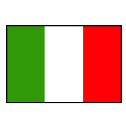
ITALY: Don’t expect the “boring, defensive” Azzurri of the past
0:56
Nedum Onuoha looks back at Mario Balotelli’s performance vs. Germany to send Italy to the final of Euro 2012.
Forget the old stereotypes. Successful Azzurri teams of yesteryear were known for uncompromising A-list defenders (think Fabio Cannavaro, Paolo Maldini, Franco Baresi or Gaetano Scirea) and lethal strikers (Paolo Rossi, Roberto Baggio, Pippo Inzaghi or Francesco Totti). Not this team. This one is all about the midfielders, a category that — with some notable exceptions — hasn’t been Italy’s strong suit in past tournaments.
But this is where coach Roberto Mancini can wallow in his strength in depth. From Inter’s Nicolo Barella to Paris Saint-Germain‘s Marco Verratti, Sassuolo‘s Manuel Locatelli and Roma’s Lorenzo Pellegrini, this side is teeming with two-way players. Pulling it all together is an old-school playmaker like Chelsea’s Jorginho, who won the Champions League last month.
Whichever trio ends up starting — and Italy are all but certain to go with a 4-3-3 formation — will be tasked with implementing Mancini’s current vision of football (he has evolved more than most over the years), which is based mostly around possession, passing and pressing. These “three p’s” are designed to make the team proactive, rather than reactive, like in the past.
Part of it is the general direction of travel in the modern game: defend-and-counter may have worked well in the past (and may still work in knockout competitions), but few top sides play that way anymore. Part of it is simply playing to your strengths and masking your weaknesses, which, in Italy’s case, were traditional areas of strength in the past.
Sure, at the back you’ll still find the big names, but Giorgio Chiellini is now 36. Leo Bonucci is 34. The latter was benched for the former during Juve’s late-season run and it’s unlikely we’ll see the pair together. They do have a hugely gifted goalkeeper, capable of taking the baton from the likes of Gigi Buffon (and before him, Walter Zenga and Dino Zoff), but Gianluigi Donnarumma is still just 22 and, more importantly, not in the best frame of mind. He turned down a contract offer from Milan, the club where he’s been a regular from the age of 16, and is now a free agent, gambling that clubs would line up to sign him. They haven’t — yet — and in the meantime, Milan signed his replacement.
Up front, there are no A-list stars — though Federico Chiesa may get there one day and Nicolo Zaniolo might already be there if injury hadn’t robbed him of the 2020-21 season and a shot at the Euros — but there’s a core of hard-working, gifted players with the ability to get hot and carry the team. All eyes will be on the center-forward position, where Mancini will likely choose between Ciro Immobile — a goal-machine for Lazio, less so on the international stage — and Andrea Belotti, a blue-collar type who hasn’t scored from open play at club level since early February.
To succeed, Mancini will need one of those two (or, perhaps, 21-year-old Giacomo Raspadori, the budget Sergio Aguero) to convert the many chances Italy create these days. He’ll need Donnarumma to be in the right state of mind (something he most definitely wasn’t the last time his club future was uncertain, in 2017 at the U21 Euros), and he’ll need the back line to hold up and not be judged against Italy defense of the past.
What he most likely won’t have to worry about is his corps of young stars in the middle of the park. — Gab Marcotti
Clear your calendar! The must-see games
From a plot perspective, the Euro schedule is nicely drawn. You begin with a couple of days of new-tournament honeymoon vibes and excitement, then you get to the good stuff. Here are the 10 group-stage matches that pack either the most intrigue or the most importance.
– June 13: Croatia at England. Per Caesars, England is the No. 2 favorite to win behind France. Their first match is a doozy, however, against a Croatia squad that is advancing in age but still features a lot of the talent that brought them to the World Cup finals — and past England in the semifinals — three years ago.
– June 13: Ukraine at Netherlands. We’ll find out a lot of what we need to know about the Dutch against a Ukraine squad made up primarily of Dynamo Kyiv and Shakhtar Donetsk players, plus a couple of Premier Leaguers (Man City defender Oleksandr Zinchenko, West Ham forward Andriy Yarmolenko) for good measure.
– June 15: France at Germany. Group F is the Group of Chaos, featuring both the past two World Cup champions (France and Germany) and the defending Euros champ (Portugal). Germany have been the shakiest of the three, but they get to play all their matches in Munich’s Allianz Arena.
– June 16: Switzerland at Italy. Switzerland is loaded with talent from Europe’s elite leagues. If this turns out to be a bumpy road for the Italians, favorites in Group A, this is about when things might go awry.
– June 17: Belgium at Denmark. Belgium might be the best team in Group B, but the home team here could be the second best. Might home-field advantage and a sturdy midfield give the Danes an unexpected edge?
– June 17: Austria at Netherlands. Austria’s squad is loaded with talent from Europe’s best clubs. If Ukraine can’t get to the Dutch, it’s possible that Alaba, Sabitzer, Baumgartner & Co. still could.
– June 18: Scotland at England. English fans know exactly how talented their team is, but the sense of “waiting for the other shoe to drop” paranoia could be at a high approaching this rivalry match against Robertson, Tierney and the neighbors up north.
– June 19: Portugal at Germany. If we assume that France advances from Group F — not a given, but they are the overall favorites — then this becomes maybe the biggest match of the group stage, an eliminator between two of the most talented teams in the entire world.
– June 23: Sweden vs. Poland. Spain got what appears to be an easy draw in Group E, but this match could be another eliminator for second place, not to mention a showcase game for Poland’s Robert Lewandowski and Sweden’s burgeoning stars (Dejan Kulusevski, Alexander Isak) in attack.
– June 23: France vs. Portugal. Few international matches are capable of fielding more pure talent among its 22 competitors than this one. We don’t yet know the stakes — Group F might be all sewn up, and it very much might not — but this one will please the eye regardless. — Connelly
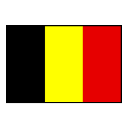
BELGIUM: Last chance for their Golden Generation to win something
Their stars are still all playing together this summer, though maybe for the last time. The Belgian golden generation have gotten close to glory in the past decade, but have never won anything. They’ve been No. 1 in the FIFA World ranking since September 2018 — technically making them the best team in the world, yet in every big competition in the last 10 years, they have fallen short.
For Eden Hazard (30 years old), Kevin De Bruyne (30), Dries Mertens (34), Toby Alderweireld (32), Jan Vertonghen (34), Axel Witsel (32), Thomas Vermaelen (35) and perhaps even Nacer Chadli (32 in August), this is the last chance. Of course, some of them will travel to Qatar for the 2022 World Cup; their youngest stars, like midfielder Youri Tielemans, might even keep playing until the 2024 Euros in Germany after Romelu Lukaku & Co. are ageing out, but this tournament stands to be their last hurrah as a group. And there is no better way to say goodbye than to finally win it.
Every time the Red Devils are among the favourites before a big competition, they stumble. At the 2014 World Cup, their first major tournament as a unit, they lost to Argentina in the quarterfinals (1-0). In 2016, at the Euros, they were too complacent against Wales in the quarterfinals, suffering an embarrassing 3-1 defeat after taking a 1-0 lead. In 2018, they were frustrated by a solid, efficient French team in the World Cup semifinal, before rallying to beat England and finish third.
Clearly, Belgium have become a power in international football. They’ve steadily improved under Roberto Martinez, who replaced Marc Wilmots as manager in August 2016. They are well-organised, with a 3-4-2-1 formation that makes the best of their squad, but also have so much individual talent to call upon. The problem is that De Bruyne is still recovering from the facial injuries he suffered in the Champions League final and could yet miss the first game against Russia on Saturday (stream LIVE on ESPN+, Jun. 12, 3 p.m. ET). Hazard is struggling for form after two nightmare years in terms of injury. Witsel hasn’t played since January and will also miss the start of the tournament.
Nevertheless, the Belgian camp believe this could be their turn, that they could finally break their duck. After all, they’re No. 1 in the world. In Romelu Lukaku, they have one of the five best strikers in the world after two superb seasons with Inter. Thibaut Courtois carried Real Madrid on his own at times this year. Yannick Ferreira-Carrasco has been fantastic in 2021 for Atletico Madrid, a clutch contributor in clinching the title. Champions League final aside, De Bruyne has been great again, while Tielemans has taken his game to the next level this season with Leicester City.
However, there are some fragilities in defense. Is the back-three really the most suited to this squad? Without a fully fit Witsel, is the defence exposed? Ultimately, the key could be how much they have learned from previous disappointments. How would they approach a semifinal against France now? How about a game against an underdog? Surely, all the experience they have gathered through all these years will come good, though time is running out.
With Russia, Denmark and Finland, Belgium have the perfect group in which to build momentum in order to hit their peak in the knockout stages. From there, the entire nation will be hoping that this time, their dream becomes reality. — Laurens

SCOTLAND: Full of enthusiasm for first tournament since 1998
Scotland never do things the easy way. After a 23-year gap between successfully qualifying for an international tournament, they needed a penalty shootout win against Serbia in the playoffs to book a place at the Euros. That win triggered memorable scenes in the dressing room as players danced awkwardly to Baccara’s 1977 song “Yes Sir, I can Boogie” — but speak to those near the Scotland squad and they’re adamant they aren’t there to make up the numbers. They’ll be based in Middlesbrough for the Euros (the Czech Republic have their usual Edinburgh base, and Croatia are at St. Andrews) so they’ll keep themselves away from the hype but will no doubt feel the public expectation. With matches against the Czech Republic and Croatia as well as a trip to Wembley to face England, Scotland will throw everything at Group D.
There’s top-tier talent up and down the team. Manager Steve Clarke will likely line his side up in a formation that allows them to shoehorn two of their best players into the team: Arsenal‘s Kieran Tierney at centre-back, and captain Andrew Robertson in the left wing-back spot. Manchester United’s Scott McTominay has been used as a makeshift centre-back, with Chelsea’s Billy Gilmour, Celtic’s Ryan Christie, Aston Villa‘s John McGinn and Southampton’s Stuart Armstrong capable of running the midfield.
They’ll need a good start and have a group of 15 or 16 players who can trouble the best in Europe. What could swing things in their favour is their team spirit. Don Hutchison won 27 caps for Scotland from 1999 to 2003, and he feels the togetherness is stronger than the Scotland teams of old. “I look at them now and think that’s a dressing room I’d love to be part of,” Hutchison told ESPN.
Scotland’s prep has been disrupted by a COVID-19 outbreak that saw seven players ruled out of their 2-2 draw against the Netherlands, and with Glasgow in lockdown, their opener against the Czech Republic could be played in front of empty stands at Hampden Park. That first game against Jaroslav Silhavy’s high-pressing Czech Republic will set the tone. “It’s a huge game for us,” goalkeeper Craig Gordon told ESPN. “We really have to go in there and get off to the best possible start. It’s a tough one, but especially at Hampden, hopefully with some fans in, I think it gives us a chance to get off to a great start.” — Hamilton
PREDICTIONS: So who’s winning this thing?
Belgium. The window is closing for the Golden Generation, but Euro history is filled with guys who didn’t play much or perform during the season, only to excel for four weeks in the summer. I’m counting on you, Eden Hazard and Axel Witsel… — Marcotti
Deschamps’ squad is head and shoulders above every other nation in the tournament. France have so much quality and depth that it’s virtually impossible to see the world champions failing to win this. – Ogden
Engl… I’m only kidding. France, France and France. Deschamps could have fielded two 23-man squads, and they’d end up meeting in the final. The strongest XI has everything, and Benzema now, which will be too tough for any opponent. – Laurens
France. The World Cup winners boast the strongest squad, and teams are able to make five substitutions in each game. Only a relatively tough draw has stopped France being shorter in the betting markets. – Olley
It’s France‘s to lose. When you can sleep easy after losing Aymeric Laporte to Spain, you know they’ve got incredible strength in depth. If you’re after a surprise package, though, keep an eye on Denmark. – Hamilton
France. Generally speaking, it seems pretty smart to bet on whichever team has a healthy Kante in it, especially when you can team him with Pogba and Mbappe. — Connelly
Portugal: They’re good from front to back and are stacked with players who are coming off impressive seasons with their clubs. If they can get through their group, they’ll fancy their chances against anyone. – Rob Dawson
I think it’s going to be a France vs. Turkey final, but whether that’s right or not, there will need to be a stewards’ enquiry if France don’t win this tournament. Blessed with abundant talent, they also demonstrably possess a tough ‘winning’ mentality. Plus ça change… – Graham Hunter
Runners-up in 2016 and winners in 2018, they already had Griezmann, Mbappe, Pogba and Kante and the rest. Now they’ve got Benzema, too, which is just cheating. France, of course. – Sid Lowe
